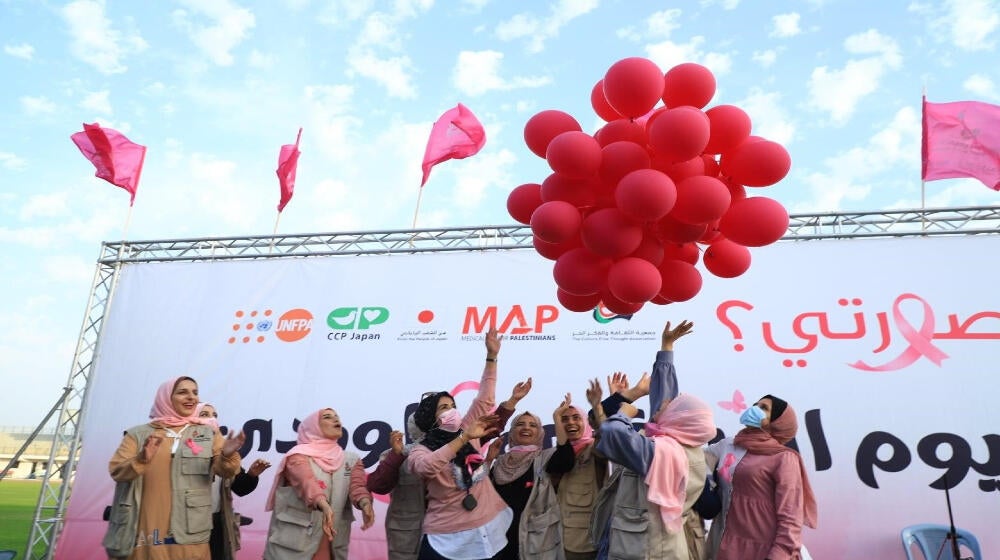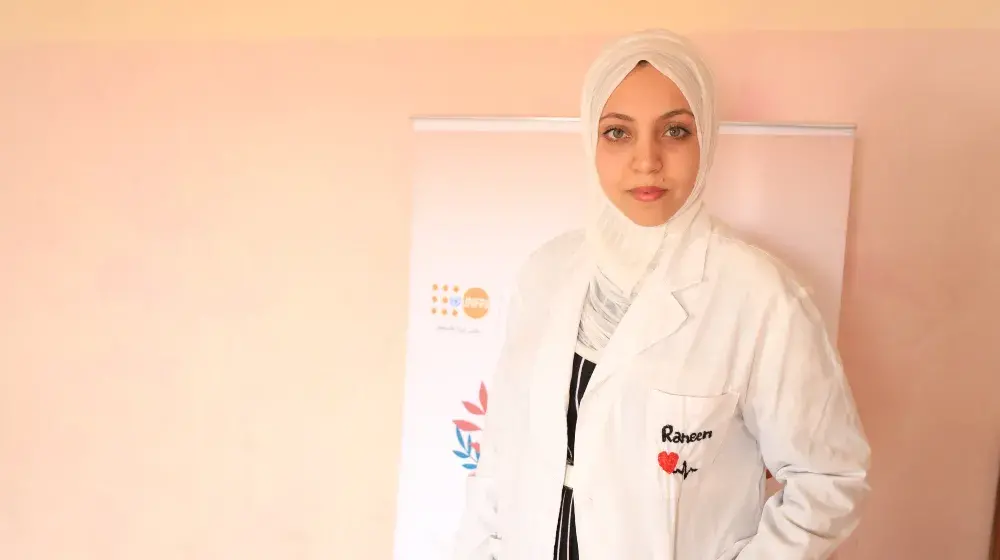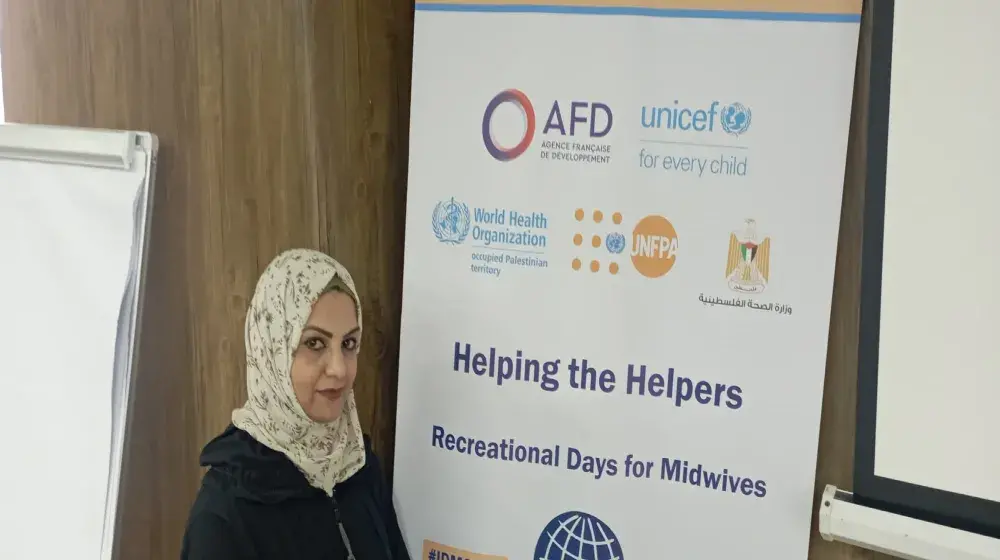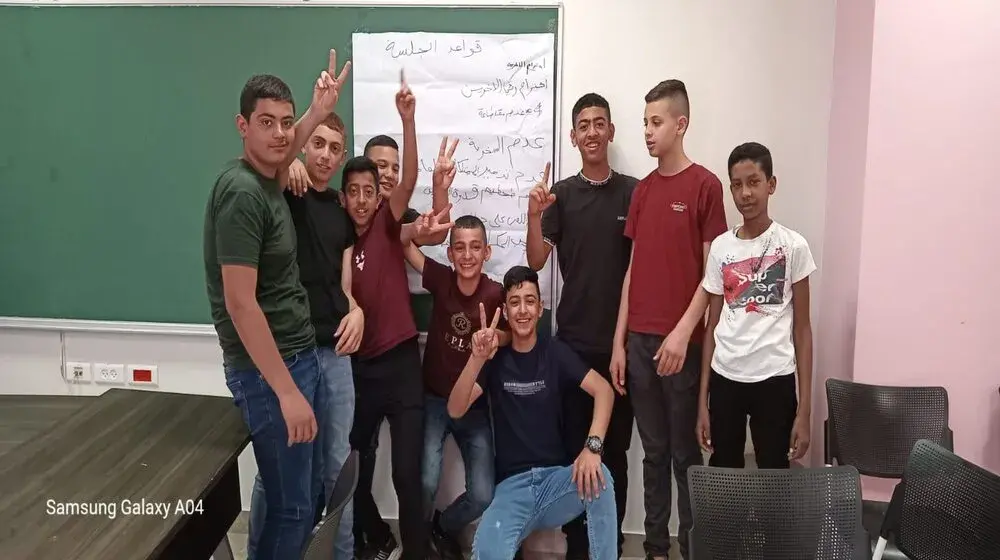Ten years ago, 55-year-old Farah from Gaza, felt a lump in my breast and went to seek medical check-ups. Soon after, she was diagnosed with breast cancer and was told her treatment plan will include a mastectomy (where the whole breast is surgically removed). “My diagnosis with breast cancer was the toughest thing that I have ever experienced. I was thinking that death is near and my life is ending”. She comments.
Breast cancer incidence has been increasing over the years in Palestine according to a report by the United Nations Populations Fund (UNFPA). The same report states that breast cancer represents 15% of all cancer cases in Palestine, and is the most common type of cancer for Palestinian women.
One of UNFPA’s key goals globally and in Palestine with regards to women’s health, is to improve breast cancer screening and early detection rates in order to save as many lives as possible. With generous support of the Japanese Government and People, UNFPA has been working with the Ministry of Health in Palestine and local organisations to achieve this goal over the past few years.
The Culture and Free Thought Association (CFTA), is one of the local organisations in Gaza that is being supported by UNFPA in the breast cancer project. CFTA, alongside its partner organisation, the Campaign for Children in Palestine (CCP), are part of this key project to provide breast cancer screening, and support breast cancer patients and survivors in the Gaza Strip.
Farah, is one of the many women who were supported in this project. She recalls the most difficult period of her cancer treatment: “I had to stay in Jerusalem alone for two months for my chemotherapy and radiotherapy treatments, it is when I felt the most physical and psychological pain during my treatment journey.”
Eman Mohammed is the coordinator of the breast cancer project at CFTA, she describes some of the biggest challenges for breast cancer treatment in Palestine: “We do not have enough treatment facilities in the Gaza Strip, and radiotherapy is not permitted here. The lengthy process of applying for permits for breast cancer patients to leave Gaza often causes delays and sometimes prevents treatment for these women.”
For over 10 years, Farah has been attending services at the CCP/CFTA women’s centre. She adds: “I will never find a better centre in the whole of Palestine. They always greet us with the sweetest smile and kindest words. The team there always asks about us and provides us with everything that we need, including medications and vitamins which I still take every day. I enjoy going on trips the most, every time I feel like a child going on a school trip.”
Eman describes how the project evolved and says: “Over the years, CCP/CFTA have reached more and more women across the Gaza Strip, with increased testing, distribution of bras and wigs, and expansion of peer support groups. There has also been improved coordination with other local organisations and the Ministry of Health, whereby joint efforts have created an expansion of awareness-raising campaigns.”
Farah also describes how she faced marriage problems during her illness, and how the CCP/CFTA centre have provided her with the needed psychological support: “They were my only true support when I was feeling unwell. I made new friends at the centre who were listening to me. We have always supported each other. Every time I had a session with the psychologist, I felt like my pain and worries fade away”.
Eman expresses CCP/CFTA’s appreciation for this project and the support from Japan: “UNFPA are true partners who include local organisations in planning for projects’ activities based on actual needs in the community. This project allowed us to take part in decision-making efforts on policy levels in Palestine. We wish for this project to continue and expand further to support more Palestinian women in need”.
In the end, Farah is thankful and grateful to everyone who contributed to this project, and hopes to keep such contribution and support to all women who have been suffering from this disease. “I tell every woman with breast cancer: God help you during your treatment journey. Stay strong, because cancer is not the end of life. Always stay faithful and positive, and never be scared.”





